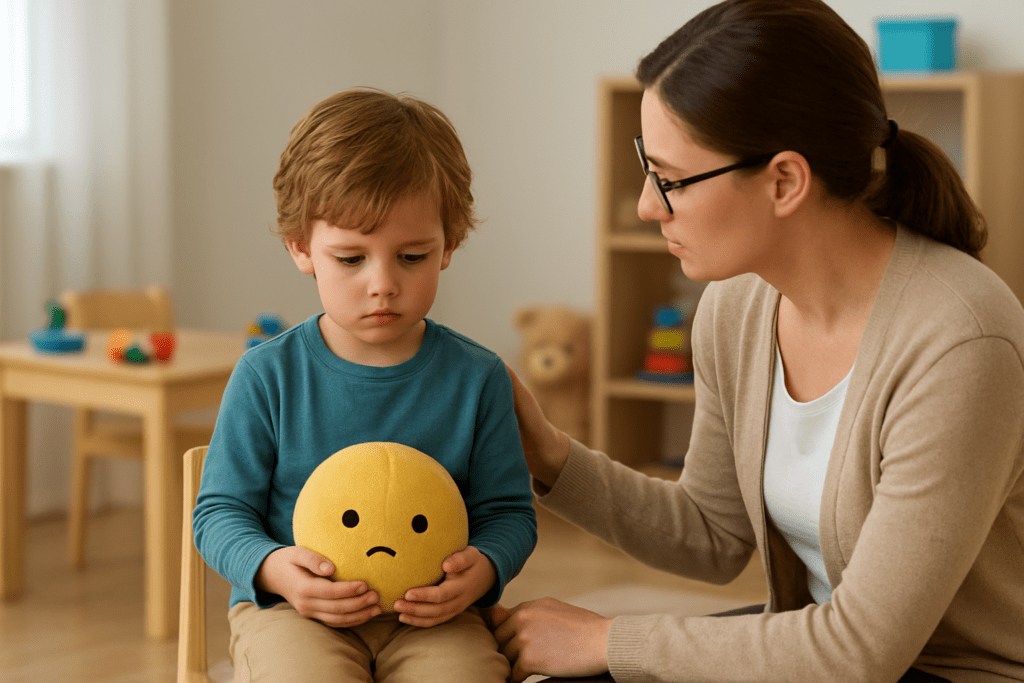Childhood is often called the “foundation years” and for good reason. The way children learn to handle their emotions in the early years shapes their ability to connect, cope, and thrive later in life.
Ignoring emotional needs early can lead to bigger challenges down the road. That’s where childhood therapy comes in, giving kids the tools to understand, express, and manage feelings in a healthy way.
At its core, early childhood therapy helps children build resilience, strengthen social skills, and create a lifelong foundation for emotional health.
Understanding Early Childhood Therapy
So, what exactly is early childhood therapy?
It’s a set of specialized interventions designed to support a child’s emotional, social, and developmental needs. Therapies may include:
- Play therapy – helping kids process emotions through play.
- Speech and language therapy – encouraging healthy communication.
- Occupational therapy – improving daily skills and independence.
- Behavioral therapy – guiding children through challenges like anxiety, aggression, or attention difficulties.
Therapy is often recommended when children show developmental delays, behavioral struggles, or difficulty coping with change or trauma. But it’s not only for challenges—it can also help kids unlock their fullest potential.
Emotional Development in Early Years
Emotional growth starts earlier than we think. From toddlers recognizing their reflection to preschoolers learning empathy, each stage builds critical skills:
- Self-awareness – “This is me, and these are my feelings.”
- Empathy – understanding and caring about others’ emotions.
- Emotional regulation – learning to calm down after frustration.
Caregivers and the environment play a huge role here. A supportive home builds confidence, while unresolved emotional struggles can lead to anxiety, social withdrawal, or anger issues later in life.
Benefits of Early Childhood Therapy for Emotional Growth
1. Building Emotional Regulation
Therapy teaches children how to identify feelings and handle them without meltdowns or shutdowns. A child who once threw toys in frustration may learn to say, “I’m upset.”
2. Strengthening Communication Skills
When children can express themselves, frustration decreases. Speech or play therapy makes it easier for them to communicate needs and feelings clearly.
3. Developing Social Skills
Group activities in therapy encourage sharing, cooperation, and empathy. This helps kids form friendships and feel ready for school interactions.
4. Boosting Confidence & Self-Esteem
Overcoming challenges, whether it’s speaking clearly or managing big emotions, gives children a sense of pride. Therapy nurtures independence and resilience.
5. Long-Term Emotional Well-being
Perhaps the biggest benefit therapy sets children up for healthier relationships, better coping strategies, and a reduced risk of mental health struggles in the future.
Role of Parents and Caregivers
Parents and caregivers are the secret ingredient in making therapy work. Active participation, whether practicing coping techniques at home or encouraging open conversations, multiplies the impact of therapy.
Collaboration between therapists, teachers, and families ensures children feel supported in every environment, from the living room to the classroom.
Conclusion
Early childhood therapy isn’t just about “fixing problems.” It’s about giving children the skills to thrive emotionally, socially, and mentally.
By addressing challenges early, we build a future of resilience, empathy, and strong emotional health.
If you’re a parent or caregiver wondering whether therapy could help your child, don’t wait. The sooner we support children’s emotional needs, the stronger their foundation for life becomes.



